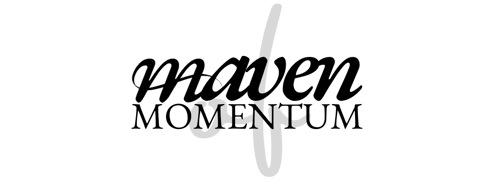Best Social Media Platforms for Small Businesses
Asking, "What are the best social media platforms for small businesses?" may appear to be a straightforward query. Yet, it's easy to jump the gun and head straight to the standard few.
As a small business or consultant, isn't it vital to invest your time and energy wisely?
Discovering the perfect social media platform for you can make all the difference – maximizing returns and avoiding burnout. It's no surprise that social media platforms have emerged as powerful tools that help businesses, influencers, and individuals share information, market products, and shape public opinion. With a well-crafted strategy, you can captivate a global audience, boost brand visibility, and fuel exponential growth.
Meet the heavyweights:
🚀 Facebook: A colossal user base awaits your message.
🐦 X (aka Twitter): Real-time updates and trending discussions at your fingertips.
📸 Instagram: Unleash your creativity with stunning photos and videos.
💼 LinkedIn: The ultimate hub for professional networking.
📺 YouTube: The world's largest video-sharing platform.
Understanding the unique features of each platform is essential to leverage the immense potential of social media effectively, so in this blog, we'll cover:
- What is social media
- The types of social media platforms
- How to choose the right social media platform

What is social media?
Social media, a dynamic realm of virtual communities, allowing us to create, share, and exchange information and ideas. It has woven itself into our daily lives, for better or worse, captivating billions of active users worldwide.
While social media took off in the early 2000s, the first true social media platform was SixDegrees, which emerged in 1997 and stuck around until 2000. It revolutionised connectivity with its Web of Contacts model, drawing inspiration from the concept of six degrees of separation. SixDegrees set the stage for popular platforms like LinkedIn, Facebook, and MySpace (Oh, the nostalgia!), forever shaping the landscape of social networking.
Since those early days, social media has evolved at breakneck speed, continually unveiling new platforms and features. Today, the most popular social media platforms serve up a multitude of services, from instant messaging and content sharing to video calling and seamless e-commerce integration.
Types of Social Media Platforms
When it comes to leveraging social media platforms for your business, don't just limit yourself to the usual suspects like Instagram, TikTok, and Facebook. Expand your horizons and consider where your ideal audience truly resides.
It's crucial to recognise that social media platforms come in different flavours, each serving specific purposes and catering to unique user preferences. So, let's explore a variety of social media types:
- Networking sites: Facebook, LinkedIn, and X are all about connecting people and fostering communication. Build meaningful connections, share updates, and expand your network.
- Blogging or microblogging sites: WordPress, Tumblr, and X allow you to express your thoughts and engage with others through blog posts or short updates.
- Photo-sharing platforms: Instagram, Flickr, and Pinterest offer a visual feast where you can showcase your photography skills and discover inspiring images.
- Video-sharing platforms: YouTube, Vimeo, and TikTok are the go-to places for sharing videos and telling your story.
- Discussion forums or community-based platforms: Reddit and Quora provide spaces to discuss specific topics, ask questions, and connect with like-minded individuals.
- Professional networking platforms: LinkedIn is the ultimate hub for professionals to connect, showcase their skills and experience, and explore career opportunities.
Each social media type offers unique features and benefits, catering to diverse needs and preferences in the digital age. Now, let's dive into the major players and learn how they're used, who uses them, and whether they're the right fit for you.
It's no doubt that Facebook revolutionised how people connect and share information. With over 2.9 billion monthly active users, it has become a dominant force in the digital realm.
Facebook, the social networking GIANT, was founded in 2004 by none other than Mark Zuckerberg and his college roommates. Since then, it has taken the world by storm, experiencing remarkable growth and becoming one of the most influential platforms out there.
But have you ever wondered how Facebook rakes in the big bucks? Well, it's primarily through advertising! Advertisers flock to this behemoth, paying top dollar to showcase their ads to specific demographics and user interests. And with Facebook's massive user base and cutting-edge data analytics capabilities, it's no wonder advertisers can't resist its allure.
But wait, Facebook doesn't stop at advertising revenue alone. It also taps into other lucrative streams like payments and fees from developers using its platform and hardware sales, including virtual reality devices. Talk about diversifying!
Now, if you want to maximise your content's performance on Facebook, listen up. The key is to create posts that are not just engaging but downright captivating. Think eye-catching images, impactful videos, and compelling storytelling techniques. Facebook's algorithm loves content that sparks meaningful interactions, taking the user experience to a whole new level.
What small businesses SHOULD use Facebook:
Facebook is the ultimate platform for small businesses and consultants seeking to connect with a vast audience or target specific individuals through powerful paid advertising.
Unlock the potential of Facebook Marketplace for seamless buying and selling, and harness the strength of Groups to join like-minded communities and explore shared interests.
Instagram, the social media powerhouse, burst onto the scene in 2010 and was swiftly snatched up by Facebook in 2012. With its visually stunning interface and user-friendly design, Instagram has become the go-to platform for sharing captivating photos and videos with your ever-growing legion of followers.
But here's the secret sauce: authenticity is key if you want to truly connect with Instagram's vibrant community. Users crave posts that are visually striking and genuine, ones that grab their attention and tug at their heartstrings. It's all about those high-quality visuals that leave an indelible mark on their souls.
Instagram knows how to make that cash flow. Advertising is where the magic happens. Businesses and brands can unleash their products through precisely targeted ads and sponsored content, reaching the right audience at the right time. And that's not all! With nifty features like Shopping Tags and Checkout, users can indulge in direct purchases within the app, fuelling Instagram's revenue stream like never before. And because Instagram is now owner by Meta (aka Facebook) you can advertise on both platforms pretty seamlessly using the Meta advertising platform.
What small businesses SHOULD use Instagram:
Instagram is best for small businesses or consultants with visually appealing products or services who want to reach a younger demographic. It's also useful for influencers, content creators, and artists looking to showcase their creativity and engage with a large audience.
X (formally known as Twitter)
X is a cutting-edge social networking platform that revolutionises how we connect and share. With features like hashtags, retweets, and mentions, X has become the go-to platform for news, opinions, and engaging conversations.
Twitter was founded in March 2006 by Jack Dorsey, Biz Stone, and Evan Williams. In 2022, X Holding Corp acquired Twitter, and the following year, it underwent rebranding and became known as X.
What small businesses SHOULD use X:
X is great for small businesses and consultants seeking a strong online presence and real-time customer interaction. Journalists, politicians, and public figures who want to share breaking news and connect with their loyal followers. And let's not forget X's advertising platform, which allows businesses to reach their target audience through promoted tweets and accounts.
LinkedIn, founded in 2002, is a social media platform primarily focused on professional networking. It provides individuals a powerful platform to showcase their skills, experience, and achievements while connecting with other professionals in their industry. According to the Digital Services Act Transparency Report, October 2023, LinkedIn has about 397 million monthly active users and has become an invaluable tool for job seekers, recruiters, and businesses.
When it comes to sharing content on LinkedIn, maintaining a professional tone is crucial. It's even better if you can focus on topics that truly resonate with your industry or area of expertise. Think thought leadership articles, industry insights, career advice, and updates on your professional achievements. By sharing valuable and insightful content, you'll establish yourself as a knowledgeable professional and build an impressive personal brand on this powerful platform.
LinkedIn, a staple in the professional landscape for two decades, caught the attention of Microsoft Corporation in 2016. And it's no wonder why! LinkedIn generates a significant chunk of revenue with its talent solutions, including job listings, recruitment tools, and premium subscriptions. But that's not all – marketing solutions like advertising and sponsored content also contribute to its success.
What small businesses SHOULD use LinkedIn:
Ever thought about how to generate leads, build brand awareness, or establish yourself as an industry expert? Well, LinkedIn is your answer! It's tailor-made for small businesses and consultants like you. With its robust targeting options, you can reach your desired audience based on factors like job title, company size, location, and more. Sounds impressive, doesn't it? That's because it is! This level of precision makes LinkedIn an effective platform for B2B marketing strategies.

Other Platforms to consider
Snapchat
Snapchat is a multimedia messaging app that stands out for its self-deleting messages. It's popular among younger audiences and offers unique features like Snap Maps, Stories, and playful filters. Snapchat is best for small businesses who want to target a younger demographic and incorporate visual content into their marketing strategy.
Pinterest is a visually driven platform where users discover and save ideas through 'pins'. It's a go-to source for inspiration in areas like fashion, home decor, recipes, and more. The platform is predominantly used by women and promotes aesthetically pleasing content. Pinterest is best for small businesses who want to showcase products or services in a visually appealing way and drive traffic to their websites.
TikTok
TikTok is a short-form video-sharing app that has seen explosive growth, particularly amongst Gen Z users. Known for its viral dance trends and challenges, the app allows users to create and share videos set to music. TikTok is best for small businesses who want to reach a younger, highly engaged audience and create fun, authentic content.
YouTube
Yes, YouTube is indeed a social media platform. It's the world's largest video-sharing platform, where people can upload, view, rate, share, and comment on videos. YouTube caters to a wide range of content, including music videos, tutorials, vlogs, and more. Its unique monetisation opportunities allow creators to earn revenue through ads, memberships, and merchandise sales. YouTube is best for small businesses who want to create engaging video content and reach a global audience.
Choosing the Right Social Media Platform for Your Business
Discovering the perfect social media platform for your business hinges on critical factors that can skyrocket your success!
First and foremost, pinpoint your target audience. Different platforms cater to specific user demographics. For instance, Gen Z gravitates towards Snapchat and TikTok, while Pinterest reigns supreme, offering unparalleled inspiration and creativity, and is most often used by women. Aligning your platform choice with your target demographic is paramount.
Next, consider how your product or service fits into the platform landscape. If you offer visually stunning products or design services, platforms like Pinterest or Instagram can be your best friends, thanks to their image-centric nature. Conversely, if video content is your bread and butter, think YouTube or TikTok for maximum impact.
And let's not forget about each platform's unique content capabilities. Snapchat brings playful filters, Stories, and Snap Maps, while YouTube opens doors to monetisation and long-form content. By harnessing these features strategically, you can unlock incredible opportunities for your business.
To sum up...
Choosing the right platform and creating targeted content that truly connects with your audience is CRUCIAL for businesses! 🎯
By understanding each platform's unique characteristics and functionalities, you can effectively tailor your marketing strategies and ENGAGE with your target market more efficiently. This knowledge allows you to LEVERAGE each platform's specific features and tools to MAXIMISE your reach, visibility, and overall IMPACT. 💥
Additionally, it's ESSENTIAL to consider who it is you want to reach! Think about your target audience's demographics, preferences, and behaviours when selecting the appropriate social media platform. By doing so, you can ensure that your content is OPTIMISED for the specific platform and RESONATES with your intended audience. 🎯
Investing time and effort in understanding different social media platforms allows you to UNLOCK the FULL POTENTIAL of your online presence, build STRONGER CONNECTIONS with your audience, and ACHIEVE your marketing goals more EFFECTIVELY. 🚀

 By
By

